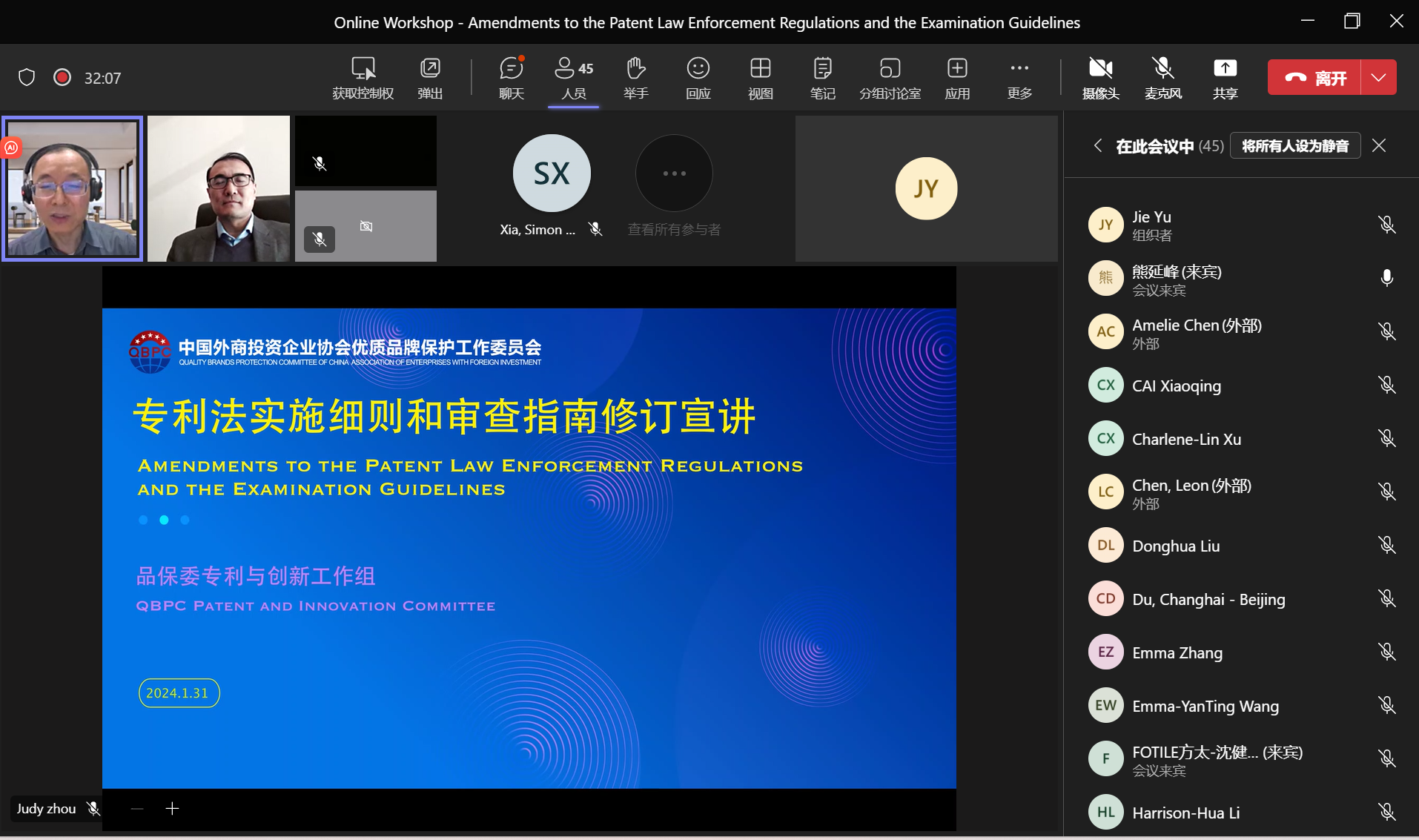On January 31, 2024, the Quality Brand Protection Committee of the China Association of Enterprises with Foreign Investment (QBPC) Patent and Innovation Committee held an online workshop on the Patent Law Implementation Regulations and the Examination Guidelines. Xiong Yanfeng and KE Ke from the China Patent Agency (HK) Ltd. made detailed interpretations on key procedural issues, remuneration for inventors, open licensing, patent administrative protection, etc. The meeting was moderated by Patent and Innovation Committee Vice-Chair Alvin Deng, and nearly 50 QBPC members participated online.

Xiong Yanfeng first analyzed the key procedural issues, the compensation for patent protection term, and notable points in the reexamination and invalidation proceedings covered by the new guidelines, in which he explained the most recent considerations on the response and amendment strategies in invalidation proceedings through his practical experience and case study. In addition, in response to new provisions on incorporation by reference as well as the restoration and modification of priority, he discussed the possible strategies of the applicant in light of enterprise demands. Furthermore, regarding the key issues of concern to enterprises, such as patent term allowance (PTA), he explained the applicability of PTA and the precautions to be taken when applying for PTA in comparison with international practice as well as the services provided by law firms in relation to PTA. In terms of job-related inventions and rewards, he provided in-depth insights into the common problems of enterprises based on the implementation rules of the Patent Law, the Law on the Promotion of the Transformation of Scientific and Technological Achievements, the rulings by the Supreme Court, etc.
Ke Ke elaborated on the adjustment of the administrative protection of patents and the newly- created open licensing system. Regarding the administrative protection of patents, he focused on the scope of the departments in charge of patent work, the distinction between the departments in charge of patent administration and the departments in charge of patent enforcement, and discussed the characteristics of the administrative protection compared with the judicial protection based on case study. As of the open licensing system, he introduced the characteristics, nature, procedure, effectiveness of licensing contract, filing of the licensing contract, reduction and exemption of the annual patent fee, connection with other procedures, remedy of disputes, etc. in comparison with the open licensing systems of the United Kingdom and Germany. In response to the concerns of members about the open licensing system, he analyzed the possible effectiveness and limitations of open licensing in practice based on his exchanges with foreign agents.
In the Q&A session, the speakers answered the questions raised by the participants, such as invalidation-related Non Bis in Idem, the common problems in entrustment, cooperation, and dispatch development between enterprises and universities, the issue of reward and remuneration in cross-border collaborative R&D projects, as well as the change of inventor, which is common to enterprises.
